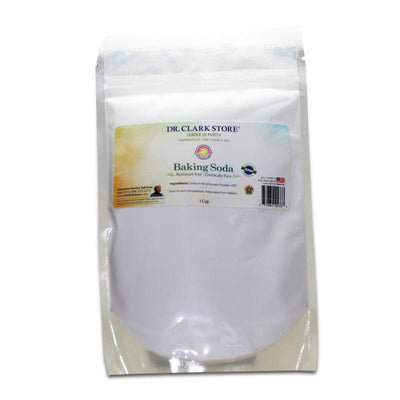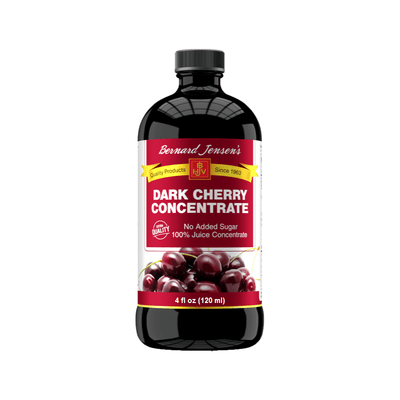Risk and Benefits of the Top 7 Most Popular Artificial Sweeteners

Artificial, or what are sometimes called non-nutritive sweeteners, are often touted as healthier alternatives to white sugar, but are they really safe to consume? This article outlines some of the risks and health problems associated with the seven most popular artificial sweeteners.
The Worst Artificial Sweeteners
-
Aspartame

One of the most controversial artificial sweeteners for many year is Aspartame. It can be found in many sugar-free goods, like diet sodas and sugar-free gum, but unfortunately has been linked to numerous health concerns such as:
- Neurological Effects: Research suggests that aspartame may affect brain function, potentially leading to headaches, dizziness, and even migraines (NCBI).
- Metabolic Effects: Some studies indicate that aspartame can alter insulin sensitivity, contributing to metabolic disorders.
Because it contains the amino acid phenylalanine, people who have phenylketonuria should avoid it as well. Phenylketonuria (PKU) is a rare genetic disorder where the body cannot break down phenylalanine, which is also found in many protein-containing foods. When phenylalanine accumulates in the body, it leads to serious health problems, including intellectual disabilities, developmental delays, and neurological issues. PKU is typically diagnosed through newborn screening, and management of the condition involves adhering to a strict, low-phenylalanine diet and, in some cases, taking special supplements or medications.
-
Sucralose
Sucralose, commonly known by the brand name Splenda, is another widely used artificial sweetener. The major health risks are:
- Digestive Issues: Sucralose has been found to affect gut health by altering the gut microbiome, potentially leading to digestive problems and reduced nutrient absorption (NCBI).
- Potential Carcinogen: There are concerns about the long-term safety of sucralose, with some animal studies suggesting a possible link to cancer. A recent study our of UNC Chapel Hill found that sucralose is genotoxic as it is able to damage DNA in human blood cells, and induce inflammatory and carcinogenic effects in the gut epithelium. ““For many years, artificial sweeteners have already been suspected of having carcinogenic effects,” Dr. Danielle Leonardo
- Glycemic Index: Supposedly 0, but studies have found that sucralose indeed raised peak plasma glucose concentration, peak insulin secretion rates in orally dosed human subjects.
“For many years, artificial sweeteners have already been suspected of having carcinogenic effects,” Dr. Danielle Leonardo
-
Acesulfame K
Acesulfame K, also known as Ace-K, is often used in combination with other sweeteners in beverages and baked goods. Studies conflict, with some stating significant alterations of gut microbiome between subjects consuming stevia and control groups, and others finding no effect. However, the studies finding a large effect on Lactobacillus species, used doses twice the recommended level per kg of body weight, which may be much higher than humans can consume. However, it should warrant caution, as well as should studies showing a cytotoxic effect. For examples, research on human lymphocytes showed that Acesulfame K caused cytotoxic and genotoxic effects.
- Carcinogenic Potential: There is ongoing debate about the safety of Ace-K, with some studies suggesting it may increase the risk of cancer.
- Impact on Metabolism: Some research indicates that Ace-K can interfere with metabolic processes, potentially leading to weight gain and metabolic disorders (NCBI). Large amounts may impact the gut micrbiome.
Not as Bad But Should Still Be Avoided
-
Xylitol
Xylitol is a sugar alcohol found in many "sugar-free" products, including chewing gum and toothpaste. Interestingly, studies are vastly divided over its over benefits and risks. Some studies have found it has selective anti-cancer activity against oral cancer cells, and others have found it makes cance rcells more sensitive to therapy.
- Digestive Issues: Xylitol can cause bloating, gas, and diarrhea, especially when consumed in large amounts.
- Toxic to Pets: Xylitol is highly toxic to dogs and other pets, even in small amounts.
- Glycemic Index: 7 (Xylitol has a low impact on blood sugar levels).
-
Allulose
Allulose is a relatively new sweetener gaining popularity for its low-calorie content and sugar-like taste. Risks:
- Digestive Discomfort: Like other sugar alcohols, allulose can cause gastrointestinal distress, including bloating and diarrhea.
- Limited Research: There is still limited research on the long-term effects of allulose consumption.
-
Monk Fruit Extract
Monk fruit extract, derived from a small green gourd native to Southeast Asia, is often marketed as a natural sweetener. Risks:
- Allergic Reactions: Some individuals may experience allergic reactions to monk fruit extract.
- Processing Concerns: Many monk fruit sweeteners are highly processed and may contain other additives.
The Safest Option
-
Stevia Extract (Stevia rebaudiana Bertoni)
Stevia extract, although not technically artificial, is still processed in a lab and liable to the same aldulteration as other extracts, but the biggest problem is that it can be mixed with other harmful additives and artifical sweeteners but still be called Stevia. However, stevia extract can be made organically without fillers or additives. It is derived from the leaves of the Stevia rebaudiana plant, is often considered the safest alternative sweetener, and is 300–450 times sweeter than sucrose. One study found no effect on gut microbiota over a 3 month period, although the subjects only consumed 5 drops a day, and the analysis showed there might be a connection between microbiome and type of sweetener ingested. Another study found that steviol glycosides expressed anti-cancer activity.
- Natural Origin: Stevia is a natural sweetener that has been used for centuries in South America.
- No Known Health Risks: Current research indicates that stevia does not have significant adverse health effects (NCBI).
“Stevia consumption appears to have positive outcomes in chronic diseases, such as hyperglycemia, dyslipidemia and hypertension, while numerous studies describe its antioxidant, anti-inflammatory and anti-cancer effects” (Source).
Conclusion
While artificial sweeteners are often marketed as a healthier alternative to sugar, all consumers should be aware of their potential risks. From neurological effects to digestive issues, the health problems associated with these sweeteners can be significant, especially when consumed on a daily basis. For those looking to reduce sugar intake without compromising health, stevia extract appears to be the safest option.




Leave a comment